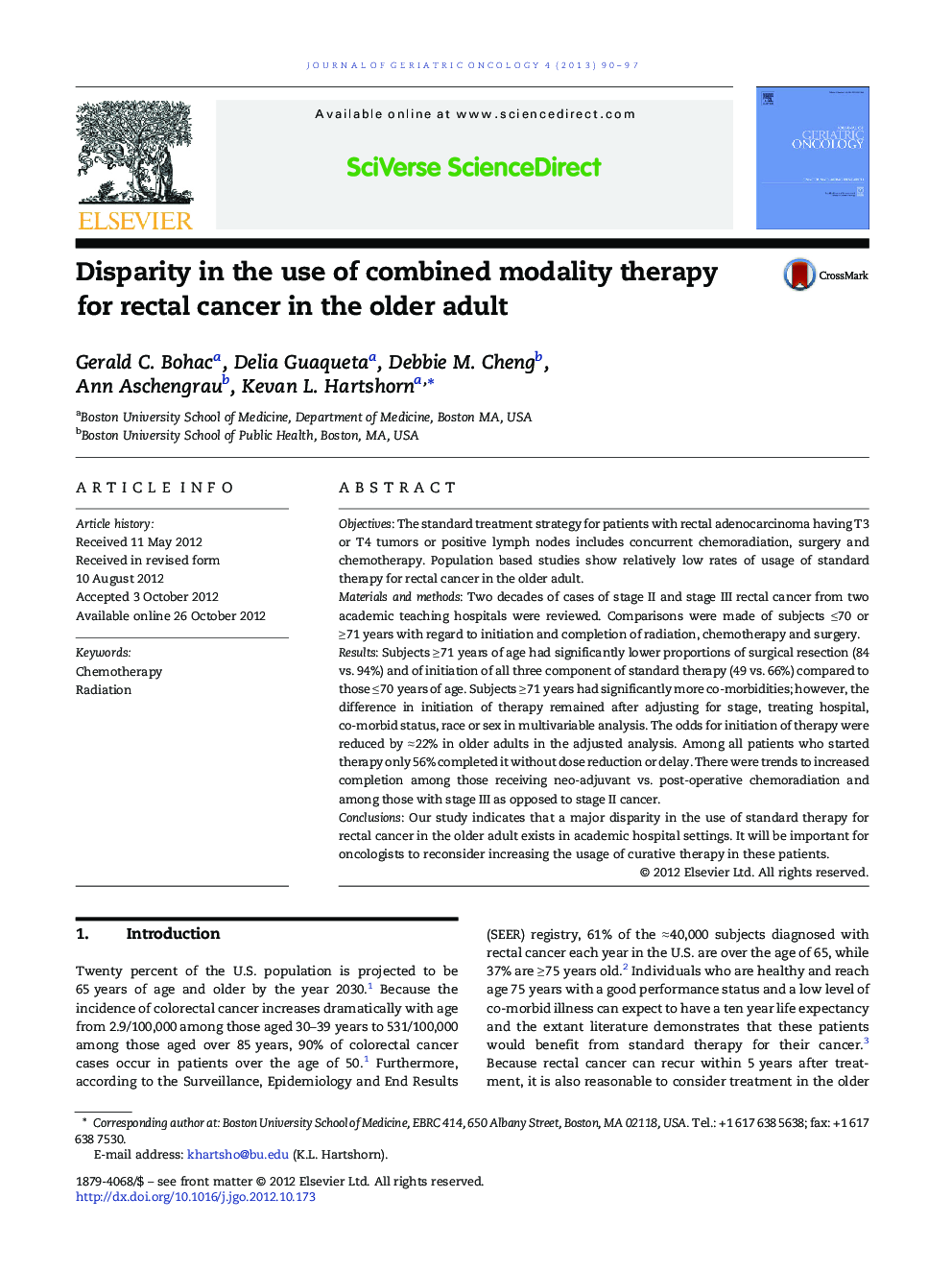| Article ID | Journal | Published Year | Pages | File Type |
|---|---|---|---|---|
| 1912908 | Journal of Geriatric Oncology | 2013 | 8 Pages |
ObjectivesThe standard treatment strategy for patients with rectal adenocarcinoma having T3 or T4 tumors or positive lymph nodes includes concurrent chemoradiation, surgery and chemotherapy. Population based studies show relatively low rates of usage of standard therapy for rectal cancer in the older adult.Materials and methodsTwo decades of cases of stage II and stage III rectal cancer from two academic teaching hospitals were reviewed. Comparisons were made of subjects ≤ 70 or ≥ 71 years with regard to initiation and completion of radiation, chemotherapy and surgery.ResultsSubjects ≥ 71 years of age had significantly lower proportions of surgical resection (84 vs. 94%) and of initiation of all three component of standard therapy (49 vs. 66%) compared to those ≤ 70 years of age. Subjects ≥ 71 years had significantly more co-morbidities; however, the difference in initiation of therapy remained after adjusting for stage, treating hospital, co-morbid status, race or sex in multivariable analysis. The odds for initiation of therapy were reduced by ≈ 22% in older adults in the adjusted analysis. Among all patients who started therapy only 56% completed it without dose reduction or delay. There were trends to increased completion among those receiving neo-adjuvant vs. post-operative chemoradiation and among those with stage III as opposed to stage II cancer.ConclusionsOur study indicates that a major disparity in the use of standard therapy for rectal cancer in the older adult exists in academic hospital settings. It will be important for oncologists to reconsider increasing the usage of curative therapy in these patients.
